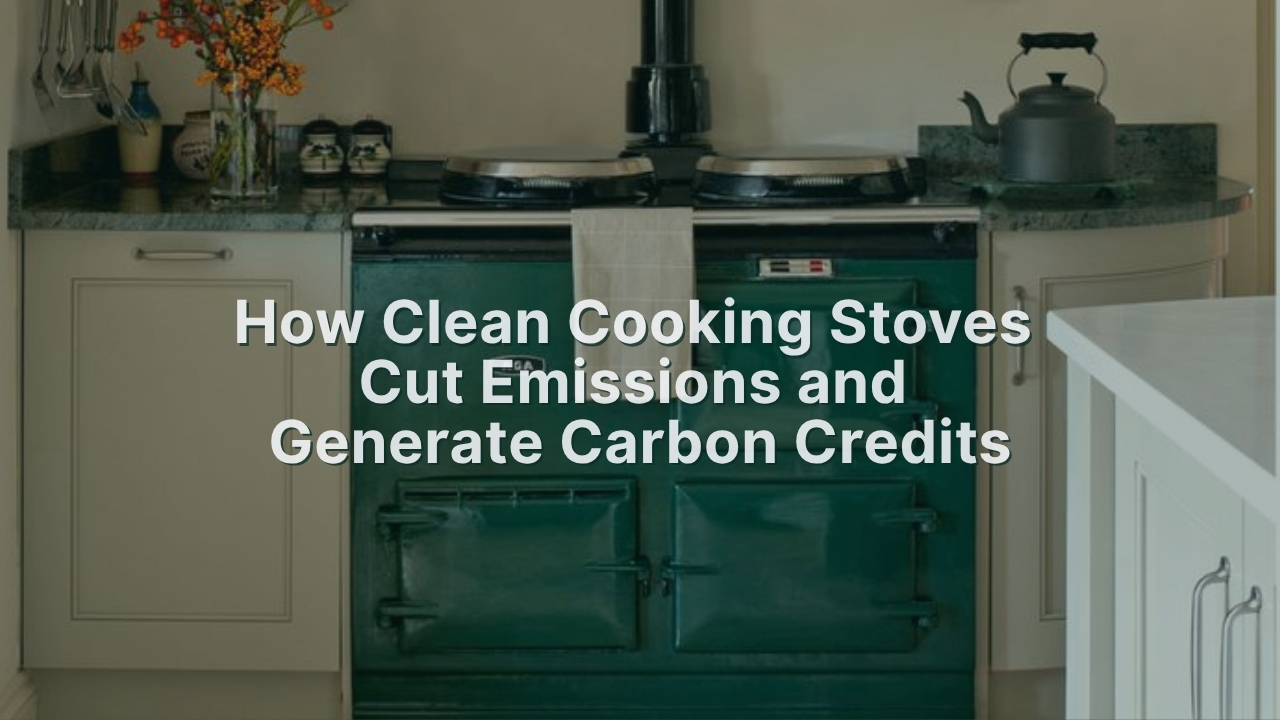How Clean Cooking Stoves Cut Emissions and Generate Carbon Credits
Science
Others

Nearly 4 billion people around the world still lack access to modern, clean cooking solutions, particularly in rural communities. As a result, many rely on polluting fuels such as firewood and kerosene. This leads to severe health risks: in Africa alone, around 500,000 premature deaths annually are attributed to indoor air pollution caused by traditional cooking practices.
Clean cooking technologies offer a scalable solution, addressing not only public health concerns but also deforestation, gender inequality, and greenhouse gas emissions.
Types of Clean Cooking Stoves
Several types of clean cooking technologies are currently in use or under development:
-
Improved stoves burn traditional fuels (wood, charcoal, briquettes, or kerosene) more efficiently. They use heat-resistant insulating materials to retain combustion heat, resulting in less fuel use and lower emissions.
-
Ethanol stoves use ethanol produced from crops like sugarcane, maize, or crop residues. Some models function with low-concentration ethanol blends (e.g., 50% ethanol, 50% water) and feature adjustable flame control.
-
Biogas stoves operate on methane generated through anaerobic digestion of organic waste (e.g., manure, food scraps, agricultural residues). The byproduct (digestate) can be used as a natural fertilizer. Methane is combusted into CO₂ and water, reducing the global warming potential of emissions.
-
Solar cookers use reflective parabolic surfaces to concentrate sunlight for cooking. They are classified into direct (pot placed inside the cooker) and indirect systems (energy transferred via an absorber). Solar energy is free and produces no emissions.
Can Clean Cooking Projects Generate Carbon Credits?
Yes. Clean cooking projects are now increasingly recognized in carbon markets. In 2023, Verra released methodology VM0050, which was approved by the Integrity Council for the Voluntary Carbon Market (ICVCM).
Additionally, several projects certified by Gold Standard demonstrate that each clean stove can reduce an average of 2.4 to 3.2 tons of CO₂ per year. These credits are attractive to buyers seeking high-impact projects with strong health and social co-benefits.
Want to expand your knowledge on decarbonization and carbon market topics? Don’t miss our weekly articles on Insights page and follow our LinkedIn to stay updated 🌳
References:
Gold Standard. (2024). Gold Standard’s response to allegations of over-crediting in Clean Cooking methodologies. Gold Standard.
Ministry of Foreign Affairs. (2025). What is Clean Cooking? Netherlands Enterprise Agency.
Pilloni, M., & Hamed, T. A. (2021). Small-Size Biogas Technology Applications for Rural Areas in the Context of Developing Countries. IntechOpen.
Rajvanshi, A. K., Patil, S. M., & Mendonca, B. (2007). Low-concentration ethanol stove for rural areas in India. Energy for Sustainable Development, 11(1), 94–99.
Riahi, A., Guizani, A., & Balghouthi, M. (2018). Investigation of solar cooker applications for rural and remote areas. Journal of Materials and Environmental Sciences, 9(8), 2438–2448.
S, S. (2025). Verra’s Cookstove Credits Get ICVCM Green Light – Boosting Carbon Market Trust. CarbonCredits.com.
Smart Energy Solutions for Africa. (2022). Clean Cooking Solutions. SESA.
UN Environment Programme. (n.d.). Improved Cook Stoves. UN Climate Technology Centre & Network.

